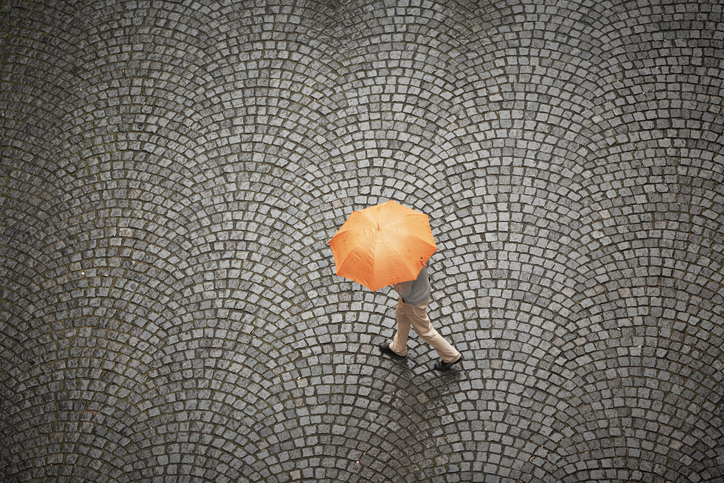 The word "rehab" might most often bring to mind words associated with alcohol, drugs, or addiction. However, many people with addiction also experience co-occurring conditions such as depression. Rehab facilities are equipped to assess and treat a variety of mental health issues. If you need professional assistance to manage depression, one option is to find a rehab center for depression in your community.
The word "rehab" might most often bring to mind words associated with alcohol, drugs, or addiction. However, many people with addiction also experience co-occurring conditions such as depression. Rehab facilities are equipped to assess and treat a variety of mental health issues. If you need professional assistance to manage depression, one option is to find a rehab center for depression in your community.
Cynthia Turner, LCSW, LSATP, an expert in drug and alcohol addiction, explains, “There are many types of rehabs. Some are ‘dual diagnosis,’ meaning they treat both substance use issues and mental health issues concurrently. There are also centers that solely treat depression as well as trauma, bipolar disorders, eating disorders, OCD, and schizophrenia.”
What is Depression?
Depression is not the same as feeling sad, a natural reaction to experiencing hardship or loss. Clinical depression is a mood issue characterized by intense sadness and symptoms that last for two weeks or more. Depression can affect emotions, sleep, work or school performance, relationships, eating habits, and mental clarity.
While depression can have a significant negative impact on a person's quality of life, the condition is treatable. If left unaddressed, depression may lead to severe emotional pain, self-harm, or even suicide. In some cases, people with depression attempt to self-medicate with drugs or alcohol.
Deciding If You Need to Find a Rehab Center for Depression
A licensed therapist or doctor can diagnose depression if you experience at least five symptoms of the condition for two weeks or longer.
Symptoms of depression include:
- Intense sadness
- Feelings of worthlessness or emptiness
- Difficulty concentrating
- Loneliness
- Guilt
- Irritability
- Fatigue
- Changes in sleep habits
- Loss of interest in hobbies
- Sudden weight loss or weight gain
- Headaches
- Joint or back pain
- Digestive issues
- Suicidal ideation
Other people with depression may have symptoms that are different from yours. Symptoms of depression can also differ in terms of frequency and intensity.
How Can Rehab Help with Depression?
Depression is typically treated with psychotherapy, medication, or a combination of both. In some cases, electroconvulsive therapy (ECT) may be used. Although depression is highly treatable, treatment is more effective the sooner it begins.
People with depression are affected in different ways, meaning your experience with the condition is unique to you. Rehab facilities can conduct thorough evaluations to understand your symptoms and work with you to develop the most appropriate treatment plan for your needs.
If you find it difficult to cope with depression, your doctor or therapist may recommend inpatient rehab. To manage depression effectively, it is important to have a secure setting where you can safely explore and address the issue. Inpatient rehab programs allow you to live at the rehab facility and work with a team of doctors and mental health professionals who provide counseling services, 24-hour support, supervised medication administration, and a stable environment for recovery.
Residential rehab can remove you from stress at home or work and give you an opportunity to focus on restoring your physical and mental health.
What to Expect at a Rehab Center for Depression
Rehab facilities may have an intake or admissions review process where they speak with you and your family members about your symptoms, the challenges you face at work or school, and issues you have with other people. This interview might be done in person or by phone. The staff members may also ask for permission to contact your previous care providers for a clearer picture of your psychiatric and medical history, other depression treatment received, and any potential obstacles to recovery and long-term health. The information discussed during intake is kept private.
If you are admitted to a rehab program, you may undergo several psychiatric and medical assessments to determine if you have any comorbid mental health issues or medical complications. The results of these assessments may be discussed with you and your loved ones to develop the best treatment plan for you. You might also be assigned a multidisciplinary treatment team that works with you, monitors your progress, and makes adjustments to meet your needs.
Potential services offered in residential rehab are:
- Individual therapy
- Group therapy
- Family therapy
- Psychoeducational classes
- Art therapy
- Equine therapy
- Yoga
- Meditation
- Dance
Many people with depression report positive results after staying at a residential rehab center. Common benefits include reduced stress and anxiety, higher self-esteem, body acceptance, increased self-confidence, a more balanced outlook on life, and improved physical and mental health.
References:
- Depression: Overview. (2016). National Institute of Mental Health. Retrieved from https://www.nimh.nih.gov/health/topics/depression/index.shtml
- Depression rehab and treatment center. (n.d.). Retrieved from http://www.therefuge-ahealingplace.com/depression-treatment/
- Depression treatment. (n.d.). Retrieved from http://www.timberlineknolls.com/depression/
- Is electroconvulsive therapy (ECT) used for addiction treatment? (2016, April 29). Retrieved from http://www.drugrehab.org/is-electroconvulsive-therapy-ect-used-for-addiction-treatment/
- Pathak, N. (2017, September 21). What is depression? Retrieved from https://www.webmd.com/depression/guide/what-is-depression#1

